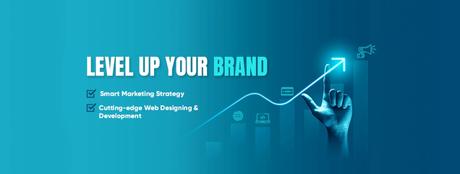The Consideration stage is the Middle of the Marketing Funnel and has a significant role in potential lead conversions into loyal customers. At every digital marketing agency, the digital marketers follow a set of strategies, tactics and productive practices to maximize conversions in the middle of the marketing funnel.
What Does the Middle Stage of the Marketing Funnel Mean?
At the Consideration Stage, the potential customers have already moved past the initial awareness phase that is from the top of the marketing funnel. At the middle of the funnel, they are considering their options actively. They are doing research, comparing the different products and services, and making an assessment of which is the best one to fulfil their demands.
How Important is the Middle Stage of the Marketing Funnel?
The middle of the marketing funnel has a lot of importance since at this stage the prospects are considering a company's products and services. Expressing their interest in the business offerings, they are thinking before paying. Hence, it's a bright chance for nurturing these leads and shift them closer to positive purchasing decisions. By collaborating with a digital marketing agency, convincing the leads becomes an easier uptake.

So, nurturing the leads in the middle stage of the funnel helps increase the conversion chances to customers. At the same time, the business grows with the entrepreneur achieving the marketing goals.
How Do the Digital Marketers Understand The Customers?
The key goal of digital marketers at the consideration stage is keeping the target audiences's attention and pushing them deeper into the purchasing stage of the funnel. When you have signed up with a digital marketing agency, then the digital marketers follow a trick for nurturing these leads and retaining their attention.
First, digital marketers understand the target customers; and psychological aspects for tailoring their marketing strategy.
Product and Service Comparison
In all probability, the leads in the middle stage are comparing different options. The psychology that works is assessing the best solution to best align with their particular requirements and priorities by weighing the pros and cons. Digital marketers profess all the positives of the business before the leads.
Building Trust
At this stage, psychology is a significant factor. Leads have to trust the information provided to them along with the source. Naturally, they will look out for reassurance for making the right choice from the expert opinions, testimonials and reviews. Here is where the digital marketers take up to Online Reputation Management (ORM).
Avoiding Risks
Risk aversion psychology is prominent at the Consideration Stage. Leads would never want to make a wrong decision since it means a waste of time, effort and money. They would want to lower all risks of making a choice. So, digital marketers work to bring in social proof by displaying assertive content.
Fears and Doubts
Leads could be in constant doubt and fear regarding making the wrong decision and making a faulty choice. They can address these signs and get reassurance through nurturing. Here, psychology is finding confidence in decisions. That is why digital marketers formulate offers and rewards to appreciate the buyers, after receiving approval from the business.
Personalization Desire
Often, the leads enjoy personalized experiences. Their psychology here is they desire to be treated as individuals having unique needs and preferences. Digital marketers address their desires through personalized emails and messages.
How Do Digital Marketers Convert Leads Into Long-Term Customers in the Middle Stage of the Marketing Funnel?

At every digital marketing agency, digital marketers understand lead conversion into customers is a critical step in the middle stage of the marketing funnel in the customer journey. Hence, they take up the following strategies for doing this effectively:
Now arriving at the end, it is worth making a note about the Middle Stage of the Marketing Funnel being a dynamic landscape where the marketing strategies are fine-tuned. Likewise, a seamless transition is facilitated from interest to action. At this stage, the leads turn into customers. Both the business and the digital market win when they have produced a careful balance of information, persuasion and personalization to achieve the marketing goals. Hence, by teaming up with a digital marketing agency, the business can gain new customers in the middle of the marketing funnel and build stronger relationships leading to long-term brand loyalty and advocacy.
